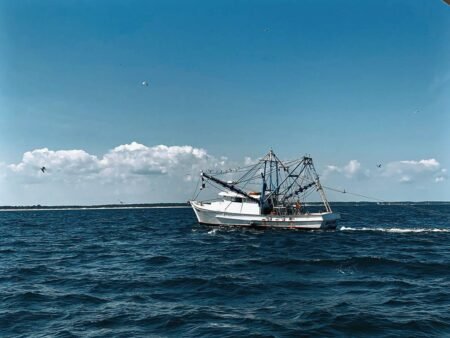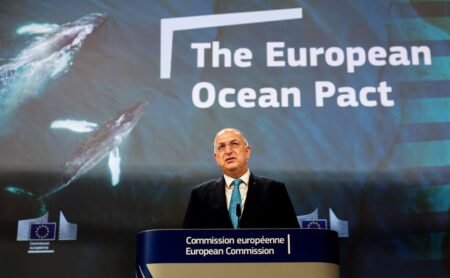The EU fishing industry is a major source of employment and food. It is therefore important to prevent over-fishing by some to the detriment of all. The European Union has a common fisheries policy (CFP) in order to manage the industry for the benefit of both fishing communities and consumers.
Advertisement
The importance of conservation
The EU fishing industry is the third largest in the world and provides more than 7.5 million tonnes of fish from fisheries and aquaculture each year. Preventing over-fishing allows adult fish to reproduce and rebuilds the stocks. Failure to do this in the past left several important fish stocks on the verge of collapse and harmed the balance of the marine ecosystem.
Careful stock management is the best way to provide fishermen with a sustainable livelihood over the long term while ensuring that fish is available to consumers at reasonable prices. Stock objectives are set several years ahead, making it easier for the fishing industry to make plans. Stakeholders, particularly fishermen, but also scientists and others, have a say in managing the policy through regional advisory councils.
Closer cooperation between the relevant authorities since reforms in 2003 has introduced greater uniformity in controls and inspections across the EU. Previously, the risk of getting caught was less in some countries than others, and the sanctions – and therefore their deterrent effect – varied. There are still improvements to be made, however, as annual compliance scoreboards highlight. The Community Fisheries Control Agency, a new entity currently in the start-up phase and being based at Vigo in Spain, Europe’s leading fishing port, will play a key role in coordinating the drive to uniformity, training inspectors and organising joint deployment of inspectors from more than one member state.
An efficient fleet and effective marketing
Prior to the Union’s 2003 reforms, the EU had too many fishing vessels chasing too few fish. Fleet sizes are being limited by restricting government financial assistance to improvements in security, working conditions and help with modernisation providing overall fleet capacity does not increase. The EU helps fund the restructuring of producer organisations to improve their effectiveness and market their catch more efficiently. Marketing standards and mechanisms to withdraw fish from the market to support prices in the event of over-supply provide a safety net for fishermen’s incomes.
International cooperation and assistance
Fisheries agreements with countries outside the EU and negotiations within regional and international fisheries organisations ensure that not only the waters of the EU, but those of the whole world, are not over-fished. At the same time, they give EU fishermen access to fish in distant waters.
Following the tsunami disaster in Southeast Asia in December 2004, the EU has funded the transfer of older, smaller fishing vessels to the region.
Developing aquaculture
Aquaculture is one means of offsetting declining fish stocks. This is already an important industry. Production of fish such as trout, salmon, sea bass and sea bream in fish farms and the culture of shellfish, such as mussels, oysters and clams, has increased by more than one third in the last decade. Of the EU’s total fish catch, more than one fifth is from aquaculture. Aquaculture is even more important in monetary terms than in terms of total catch.
However, EU aquaculture is not growing as fast as aquaculture in the rest of the world. The Union is working through policy measures and financial assistance to ensure that the range of products is enlarged and marketing strategies are improved in order to provide the industry with an assured future. This is in the interests of choice and affordable foodstuffs for consumers, but also of the EU’s remoter regions where fishing often provides a basic livelihood. Aquaculture can create jobs in areas of high employment and offset the seasonality of jobs in tourism or deep sea fishing.
Financial support
Significant funding is available to support the CFP. The main instrument is the Financial Instrument for Fisheries Guidance. Its budget for 2000-2006 is EUR 1.11 billion, mainly for the EU’s less developed regions. There is separate funding for inspections and controls. In addition, research funds are available under the Sixth Framework Programme for research and innovation to gain, for example, a better understanding of marine ecosystems and to develop indicators to monitor the environmental performance of the fishing industry.
The environmental dimension
More and more, EU policymakers look at the environmental implications of their decisions not only on fisheries and marine life, but on the whole marine ecosystem. Rules on fishing techniques minimise the number of dolphins and porpoises which get caught up in fishing nets.
In addition, land-based environmental tenets are being extended to fishing. Fishermen are liable for any pollution for which they are responsible (the “polluter pays” principle). When the environmental impact of a specific course of action is uncertain, then it is not pursued (the “precautionary principle”). The maritime dimension
While fisheries and environment policy are to some extent integrated, there is much greater scope to integrate all policies which affect the maritime environment. In the past, fragmentation made it difficult to weigh up the potential impact of one policy on another, but this is being addressed through the launch of new ideas on what an integrated policy could look like and consultation on these with stakeholders.
While fisheries and environment policy are to some extent integrated, there is much greater scope to integrate all policies which affect the maritime environment. At the moment, fragmentation makes it difficult to weigh up the potential impact of one policy on another.
An integrated policy would improve coordination on discrete developments, such as port expansion, construction of offshore wind farms or the response to offshore drilling and shipping accidents – all of which can affect the fishing industry and fish stocks, and channelling funds for structural improvements bearing the broad maritime dimension in mind. Taking an integrated approach to transport, energy, employment, fisheries, tourism and leisure in the face of global competition will help maintain the comparative advantage of the maritime sector as a whole and optimise sustainable use of the oceans and seas.
EU Fisheries web links
European Commission Fisheries DG
EU Fisheries Grants and Loans
Summaries of EU Legislation in Force: Fisheries Policy
Recent case-law of the Court of Justice and the Court of First Instance : EU Fisheries
Further information on EU Fisheries Policy on Europa





